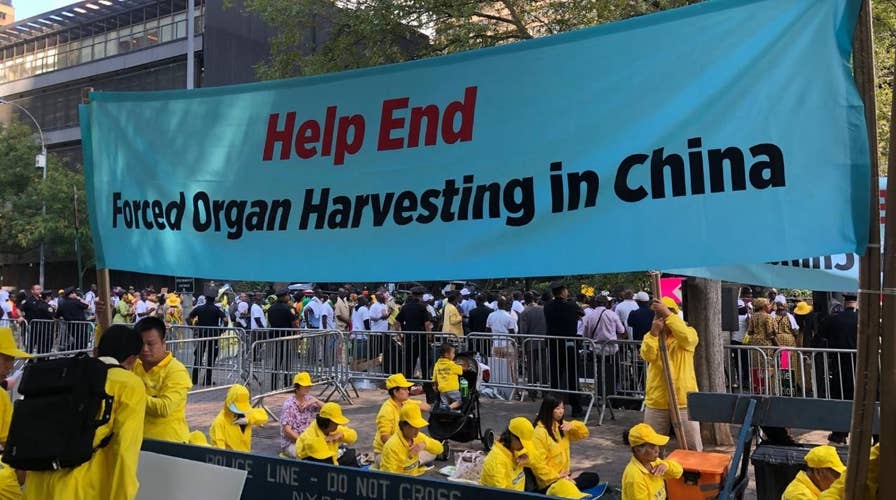China's state-sanctioned organ harvesting victims speak out
Survivors and victims’ tell their stories of state-sanctioned organ harvesting by the Chinese government.
Having hepatitis C may very well have saved Jennifer Zeng’s life.
In February 2000, she was arrested for being a Falun Gong practitioner and interrogated intensely about her medical history at a Labor Camp in China’s Da Xing County, she said. Zeng’s blood was drawn and she told them she had hepatitis C before she took up the spiritual practice.
“Twelve days later, my (cellmate) died as a result of forced feeding,” Zeng told Fox News. “Having hepatitis C might have unqualified me as an organ donor.”
It’s the stuff of nightmares. And it has been buried from public view, hard to prove, and shrouded beneath the cloak of silence for almost two decades.
But anecdotes and evidence are slowly bubbling to the surface that the organs of members of marginalized groups detained in Chinese prisons and labor camps are unwillingly harvested. Most affected is a spiritual minority, the Falun Gong, who have been persecuted for adhering to a Buddhist-centric religious philosophy grounded in meditation and compassion.
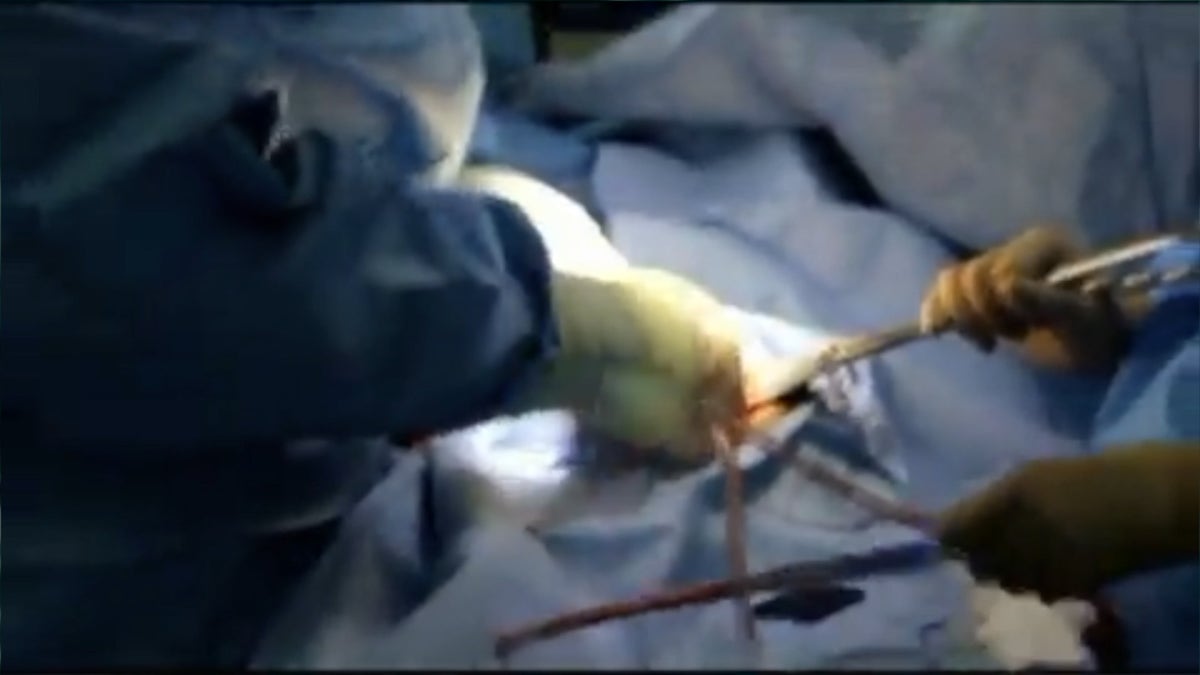
Footage pertaining to alleged illegal organ harvesting in China (Yu Ming )
After 12 months of independent assessment of all available evidence, the seven-person China Tribunal panel – which was initiated by the International Coalition to End Transplant Abuse in China (ETAC), an international human rights charity – delivered its final findings in June. The tribunal, chaired by Sir Geoffrey Nice QC who led the prosecution of Slobodan Milosevic in the International Criminal Trial for the former Yugoslavia, stated with “certainty” that “in China, forced organ harvesting from prisoners of conscience has been practiced for a substantial period of time.”
“Forced organ harvesting has been committed for years, and Falun Gong practitioners have been one – and probably the main – source of organ supply,” the report concluded, pointing to the growing transplant industry already worth more than $1 billion.
WHAT CHINESE SPIES WANT FROM AMERICANS
The report underscored that there were “extraordinarily short waiting times for organs to be available for transplantation,” and numerous websites advertised hearts, lungs, and kidneys for sale – suggesting an on-demand industry. The Tribunal concluded that the commission of Crimes Against Humanity against Falun Gong and Uighurs had been committed.
Witness testimonies provided to the tribunal, and interviewed by Fox News, paint the picture of an unfathomably callous trade often performed when the victims are still alive.
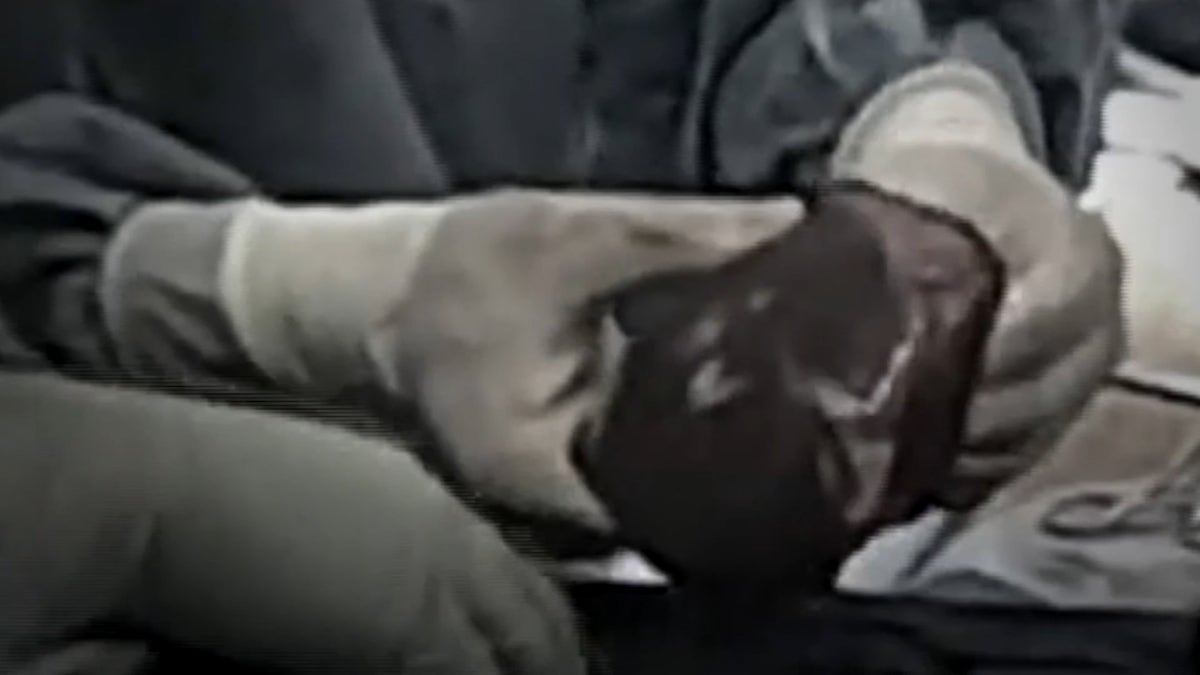
Orang transplantation in China has been condemned as a criminal practice (Courtesy Yu Ming )
Han Yu was kidnapped on July 20, 2015, and detained for 37 days in Beijing’s Haidian District Detention Center.
In May 2004 – three months after her father disappeared into a detention center – Han Yu received a call that her father, a Falun Gong practitioner, was dead. But it wasn’t until almost a month later that the family was allowed to view the body at Liangxiang District Xiao Zhuang village morgue, with dozens of authorities surveilling their every move.
“I saw obvious injuries on his face, even after the makeup, the severe bruise below his left eye stood out. There was a trace of stitches starting from the throat down to where his clothes covered,” Yu recalled. “I tried to unbutton the clothes, the police saw and quickly dragged me out. Later another family member went in and continued to unbutton and found stitches that went all the way to the stomach.”
She suspects her father was a victim of organ harvesting. The family was not given an autopsy, Hu stressed, and the body was hurriedly cremated.
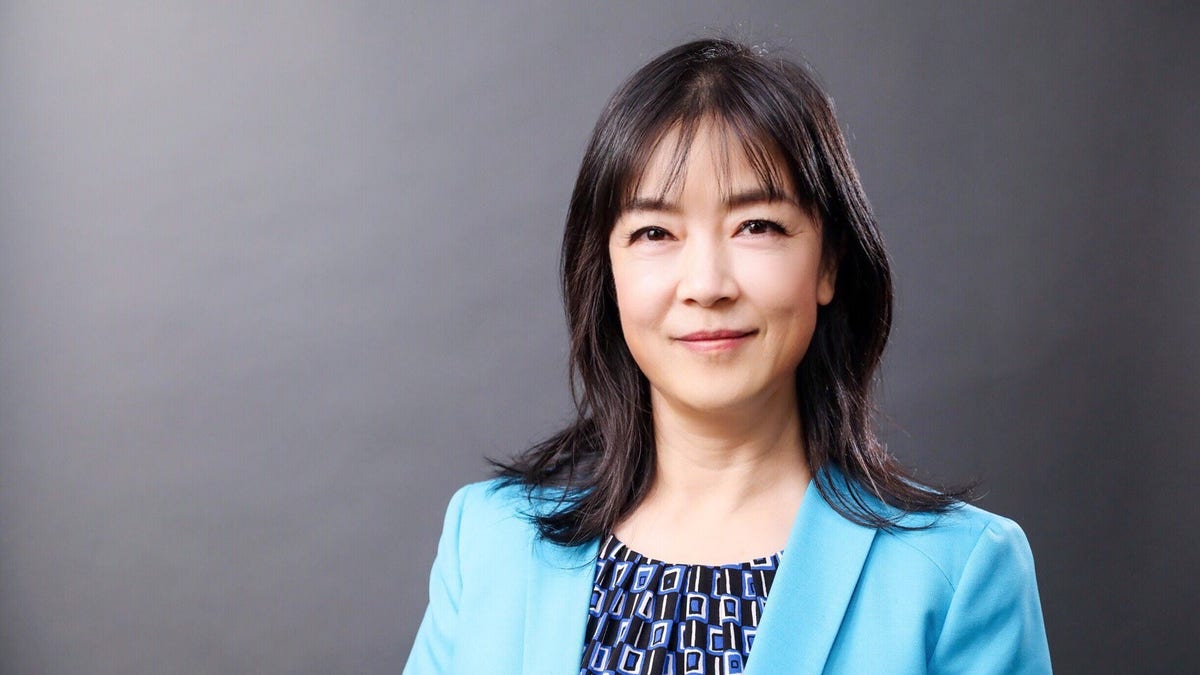
Jennifer Zeng (Samira Bouaou)
“We were not even allowed to cry when he was buried,” Hu continued, reflecting on the throngs of authorities that trailed their every move and prohibited any photographs from being taken. “After I heard about organ harvesting, I couldn’t imagine what had happened to my father before his death. It happened, and it is happening.”
Jiang Li also believes her father, Jiang Xiqing – also of the Falun Gong faith – was a victim to the harrowing practice. He was arrested on May 2008 and sent to a forced labor camp. On the afternoon of January 27, 2009, she and three other family members went to visit him.
“His mental and physical health was normal. Then at 3.40 p.m. the next day, the labor camp called my brother and said he had died and immediately hung up,” she said. “Seven of my family members arrived at the mortuary house at 10.30 p.m. with the guidance of police officers. They read out the regulations – we could see the body for only five minutes, no cameras or communication devices, and we could only go to the freezer room to see Jiang’s head and not his whole body.”
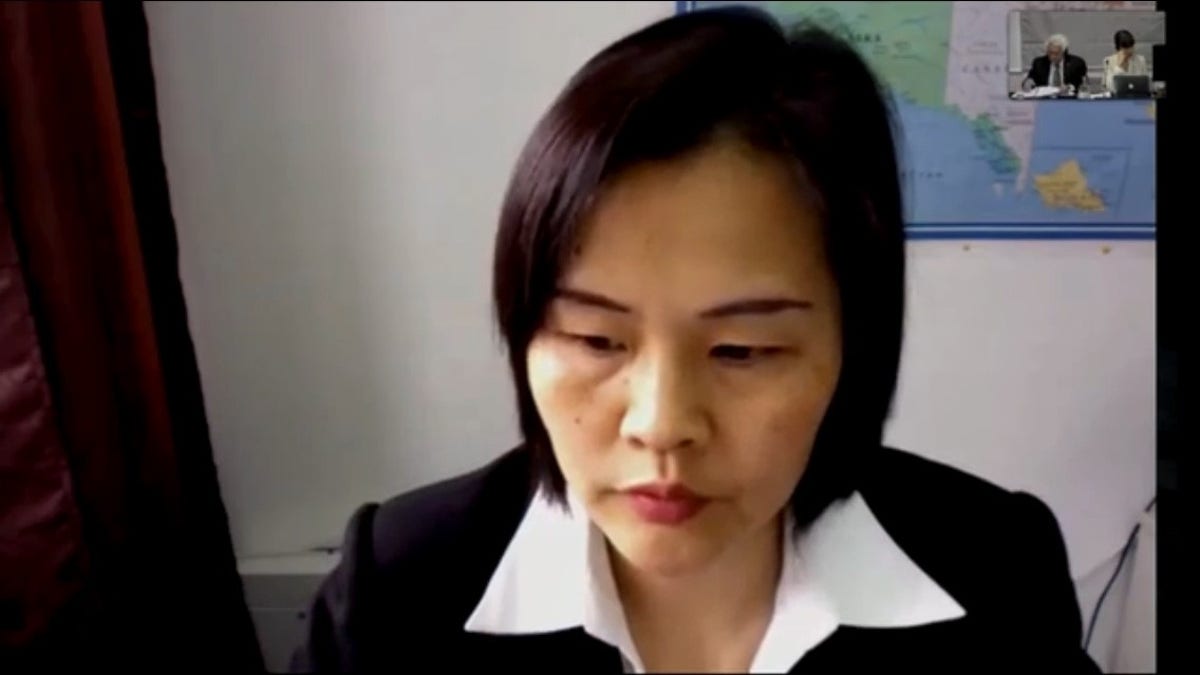
Jiang Li also believes her father, Jiang Xiqing – also of the Falun Gong faith – was a victim to the harrowing practice. (China Tribunal)
But when her older sister touched his face, she screamed that his philtrum was still warm, and his upper teeth were biting his lower lip. He was alive.
“We pulled out my father’s body halfway. We touched his chest, and it was warm. He was wearing a down jacket. My older sister prepared to perform CPR,” Li continued. “But were each forcibly dragged out of the freezer by four people. Uniformed and plainclothes officers pushed my father’s body into the freezer. They demanded that we quickly sign for cremation and pay the fees.”
The family has since attempted to seek some sense of justice – their lawyers ended up behind bars, and their family home was raided. In 2010, Li said she was terminated from her job without explanation and detained.
Survivors routinely point to the frequent physical screenings, ultrasounds, and X-rays as further corroboration that victims are being monitored to determine whose organs are healthy enough for transplantation purposes, as most are pushed to the brink in allegedly tortuous interrogation sessions.
Moreover, the China Organ Harvest Research Center (COHRC), which also testified before the China Tribunal, published its own incriminating report in July after years of underground research and analysis, deducing that the “on-demand killing of prisoners of conscience is driven by the state, run on an industrial scale and carried out by both military and civilian institutions.”
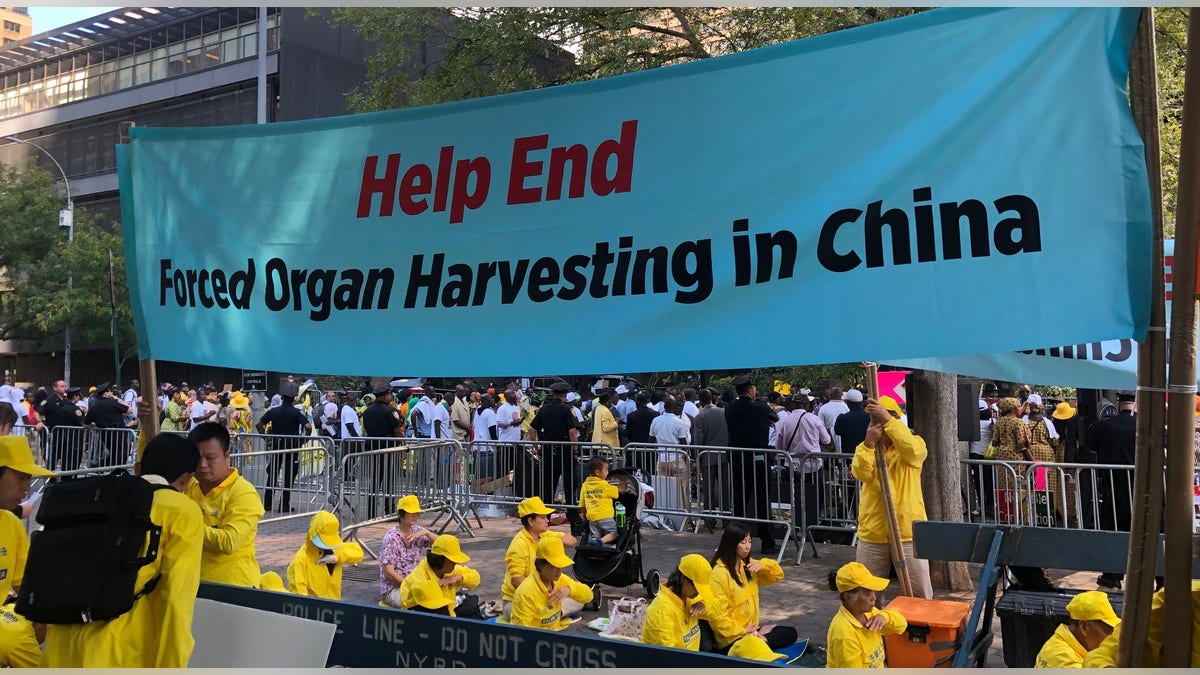
Falun Gong advocates demonstrate across from the U.N. in September (Adam Shaw/ Fox News)
China boasts that it sustains the largest voluntary organ donation system in Asia, but experts contend that the country does not have a history of willful organ donation and the official figures – 10,000 transplants each year – “understates the real volume,” which researchers pledge is likely upward of 60,000-100,000 annually.
According to the COHRC, there are mountains of money to be made. Data from 2007 shows that hospitals charged more than $65,000 for a kidney transplant, $130,000 for liver, and more than $150,000 for lung or heart. Desperate patients might make a high-price “donation” for a new organ at top-speed.
The practice is alleged to have started in the 90s on a small-scale, but kicked into high gear around 2000 and focused on the Falun Gong. It was initially characterized as targeting the forcible removing of organs of prisoners on death row.
“China later claimed that death row prisoners consented to donate their organs to the State to redeem themselves for the crimes they had committed against the State, a practice China claimed to have stopped in January 2015. However, the explosion of organ transplant activities in China from 2000, together with reports of thousands of transplant tourists going to China to purchase organs, suggests a larger supply of organs than could be sourced from executed criminals alone,” the Tribunal states. “The scale of the Chinese transplant industry, together with other evidence, points to the possibility that China is involved in forced organ harvesting and selling for profit organs from prisoners of conscience.”
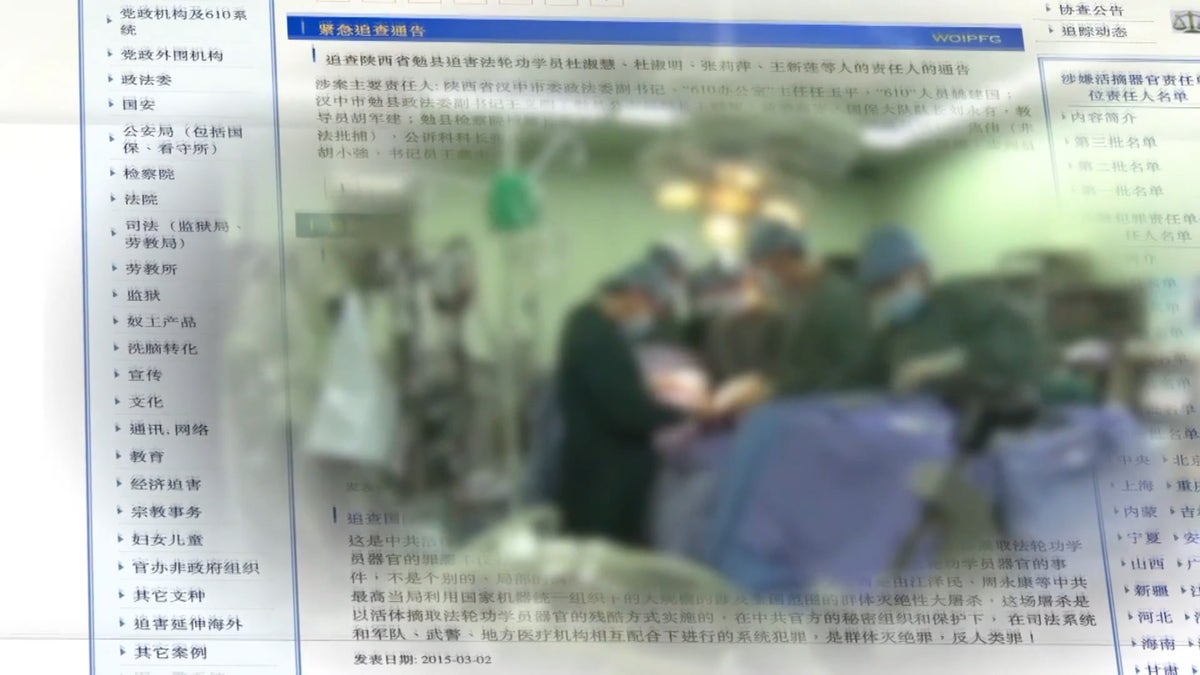
(Provided Yu Ming )
The Tribunal affirmed that it “has had no evidence that the significant infrastructure associated with China’s transplantation industry has been dismantled and absent a satisfactory explanation as to the source of readily available organs concludes that forced organ harvesting continues till today.”
Grace Yin, a leading researcher at the COHRC, also asserted that by admitting to less severe abuse and proclaiming it was only happening to those awaiting capital punishment, the government was purporting to “divert attention away from the more severe issue.”
“The root issue still goes back to the Communist Party’s persecution of faith groups and its animosity toward groups that it perceives as threats to its ideological control,” she said.
Olivia Enos, a senior policy analyst and Asian studies expert at The Heritage Foundation, concurred that organ harvesting has long been a largely overlooked aspect of human rights abuses and has been predominantly reported by the Falun Gong.
“In recent months, however, as the crisis in Xinjiang gathered steam, new reports have emerged that Uighurs may be having their organs harvested,” she observed.
US SPEAKS UP FOR MINORITY MUSLIM UIGHURS IN CHINA - WHILE ISLAMIC COUNTRIES STAY MOSTLY SILENT
Xinjiang, also referred to by some as East Turkistan, has made headlines with the revelations that upwards on one million belonging to the Muslim minority have been carted off into concentration camps. Chinese leaders have categorically denied misconduct, insisting that Uighurs are in “re-education camps” and doubled-down that the government respects religious rights. Four Uighurs testified before the China Tribunal that they had been organ scanned whilst in detention.
Salih Hudayar, ambassador to the U.S. for the East Turkistan Government in Exile and a leader in the beleaguered Uighur community, told Fox News that the Chinese government claims that “written consent is required for all organ transplants,” but in reality it is hardly likely there was any such consent, and if there was it would have been “extracted through torture.”
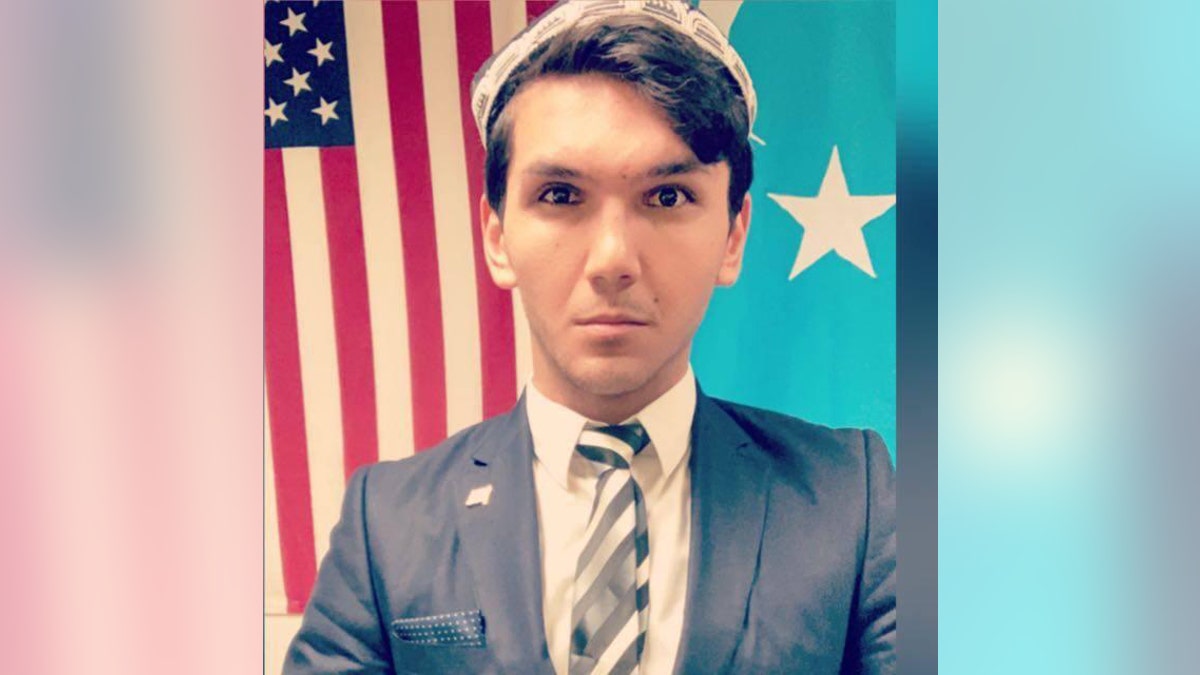
Salih Hudayar – political affairs officer for the East Turkistan National Awakening Movement, a Washington-based human rights groups devoted to the independence of the region – argued many countries are staying silent over fears of jeopardizing investments. (Supplied Salih Hudayar)
“Voice prints and retina scans were collected in 2016-2017 in East Turkistan, and some of us fear that they might be used for organ matching,” Hudayar continued. “We fear that today, the Chinese Communist Party may be harvesting the organs of not just Falun Gong practitioners, but also Uighurs, Tibetan Buddhists, Chinese Christians and other prisoners of conscience.”
But some political leaders are pushing for the U.S. to take a stronger stance in investigating the horrific allegation.
“It is just so bizarre it was hard to believe. That (governments) can defile a human being like that,” Shawn Steel, California’s Republican National (RNC) Committeeman, told Fox News. “Medical tourism is big business; if you are wealthy, you can get the organ you need in a couple of weeks. Thousands are being sacrificed every year, and it is not being discussed.”

Shawn Steel, California’s Republican National Committee (RNC) chairman (Steel (provided))
Earlier this year, Steel introduced a resolution to the RNC condemning Beijing’s practice of involuntary organ harvesting from inmates, which was unanimously adopted at the quarterly conference in August. It marked the first explicit charge from a prominent U.S political party on the matter.
Representatives for the Chinese Embassy in Washington did not respond to a request for comment, but the government has previously denied any accusations of illicit organ harvesting or mistreatment of prisoners.
And many assert the practice is still happening.
Yu Ming, 47, another member of Falun Gong and newly arrived in the United States, claimed that he was “kidnapped” multiple times by law enforcement, the most recent time in August 2013, and locked up in the Shenyang Detention Center where he was allegedly beaten into oblivion.
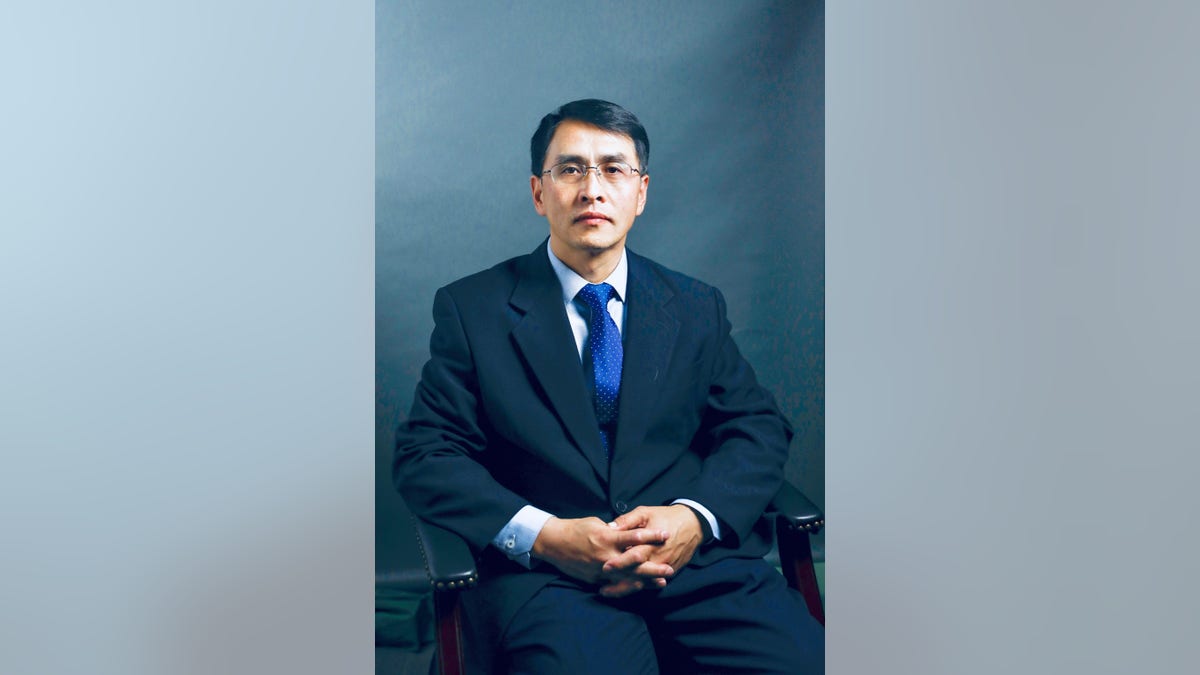
Yu Ming (Samira Bouaou)
As time when on, his friends disappeared. The family of one Falun Gong companion, Gao Yixi, recalled seeing “his eyes opened wide, his stomach deflated and no organs inside.”
He secretly recorded footage of undercover interviews at major military hospitals in mainland China over the past couple of years, he said, and has turned it over to the Tribunal as evidence for unlawful organ transplants.
CLICK HERE FOR THE FOX NEWS APP
“Only a pile of ashes is given to the family members,” he added. “We cannot be silent.”








































